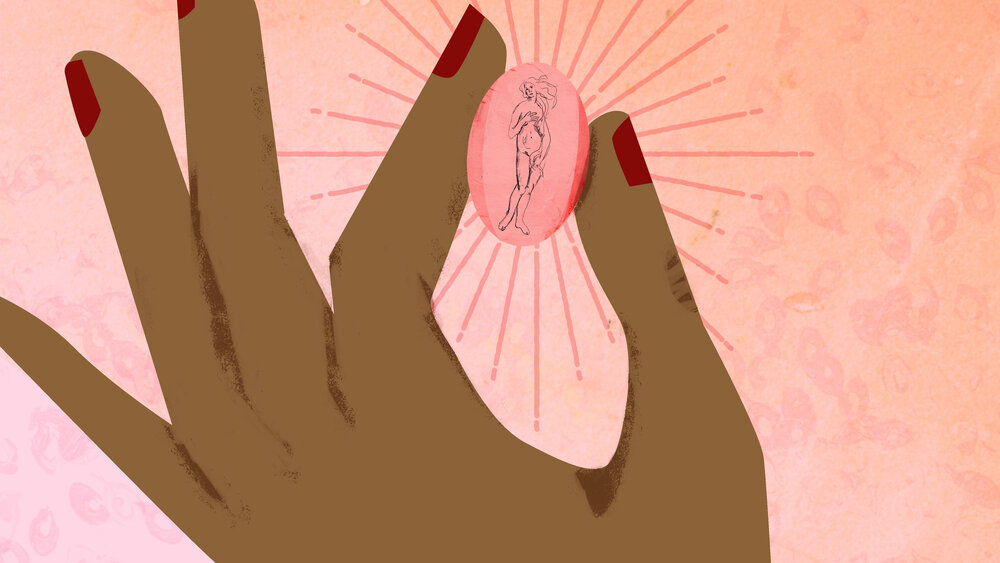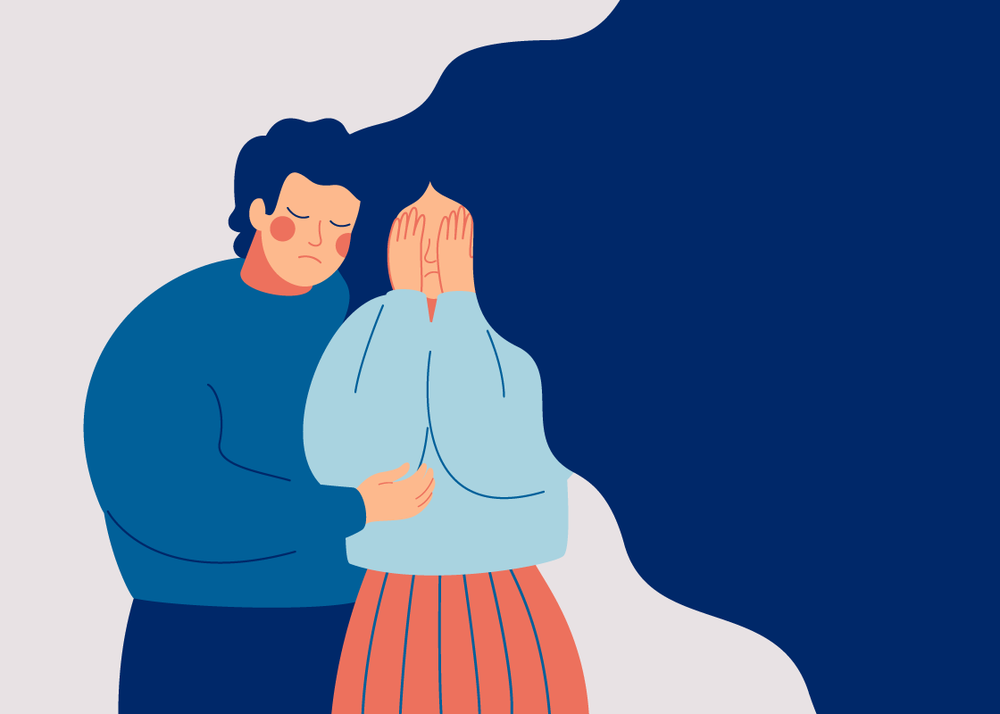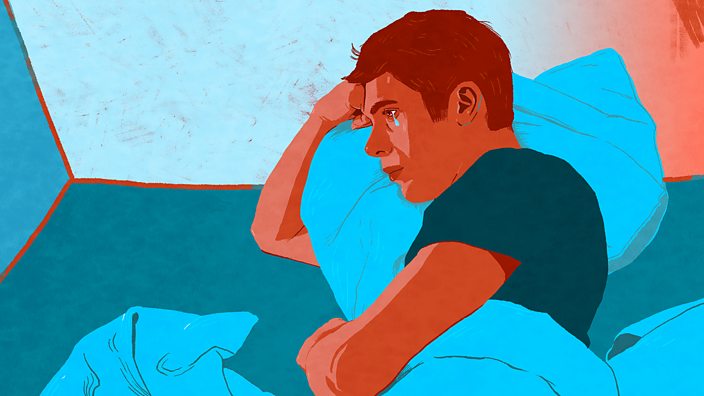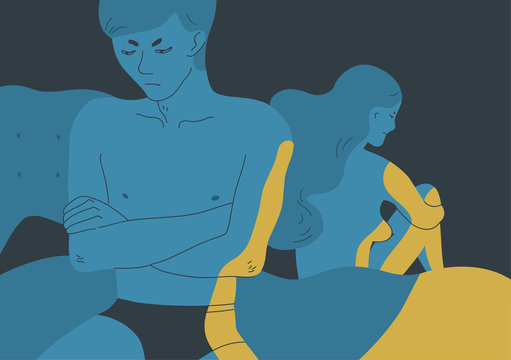All You Need To Know About Sexual Dysfunction!
To begin with , sexual dysfunction is the difficulty experienced by an individual or partners during any stage of normal sexual activity, including physical pleasure, desire, preference, arousal, or orgasm. World Health Organization defines sexual dysfunction as a “person’s inability to participate in a sexual relationship as they would wish”.
The sexual response cycle traditionally includes excitement, plateau, orgasm and resolution. Desire and arousal are both part of the excitement phase of the sexual response. Sexual dsyfunction doesn’t allow these emotions to get expressed. Sexual dysfunction can have a profound impact on an individual’s perceived quality of sexual life. The term sexual disorder may not only refer to physical sexual dysfunction, but to paraphilias as well; this is sometimes termed disorder of sexual preference.

TYPES OF SEXUAL DYSFUNCTION
Sexual dysfunction generally is classified into four categories:
- Desire disorders: lack of sexual desire or interest in sex.
- Arousal disorders: inability to become physically aroused or excited during sexual activity.
- Orgasm disorders: delay or absence of orgasm (climax).
- Pain disorders: pain during intercourse.
SYMPTOMS OF SEXUAL DYSFUNCTION
In penis owners –
- Erectile dysfunction– Inability to achieve or maintain an erection (hard penis) suitable for intercourse.
- Retarded dysfunction– Absent or delayed ejaculation despite enough sexual stimulation.
- Early/Premature ejaculation– Inability to control the timing of ejaculation.
In vagina owners –
- Anorgasmia– Inability to achieve orgasm.
- Vaginal Dryness– Inadequate vaginal lubrication before and during intercourse.
- Vaginismus– Inability to relax the vaginal muscles enough to allow intercourse.
Some common symptoms –
- Low sex drive– Lack of interest in or desire for sex.
- Arousal disorder– Inability to become aroused.
- Dyspareunia– Pain during intercourse.

CAUSES OF SEXUAL DSYFUNCTION
Sexual dsyfunction is caused by physical, psychological tensions or due to some medications.
- Physical causes – These conditions include diabetes, heart and vascular (blood vessel) disease, neurological disorders, hormonal imbalances, chronic diseases such as kidney or liver failure, and alcoholism and drug abuse. In addition, the side effects of some medications, including some antidepressant drugs, can affect sexual function.
- Psychological causes – These include work-related stress and anxiety, concern about sexual performance, marital or relationship problems, depression, feelings of guilt, concerns about body image and the effects of a past sexual trauma.
- Medications – Some prescription medications and even over-the-counter drugs can have an impact on sexual functioning. Some medicines can affect libido (desire) and others can affect the ability to become aroused or achieve orgasm. The risk of sexual side effects is increased when an individual is taking several medications.

TREATMENT FOR SEXUAL DSYFUNCTION
Most types of sexual dysfunction can be addressed by treating the underlying physical or psychological problems. Other treatment strategies include:
- Medication – When a medication is the cause of the dysfunction, a change in the medication may help. People with hormone deficiencies may benefit from hormone shots, pills or creams.
- Mechanical aids – Aids such as vacuum devices and penile implants may help men with erectile dysfunction. A vacuum device is also approved for use in vagina owners, but can be expensive. Dilators may help vagina owners who experience narrowing of the vagina. Devices like vibrators can be helpful to help improve sexual enjoyment and climax.
- Sex therapy – Sex therapists can people experiencing sexual problems that can’t be addressed by their primary clinician. Therapists are often good marital counselors, as well. For the couple who wants to begin enjoying their sexual relationship, it’s well worth the time and effort to work with a trained professional.
- Behavioral treatments – These involve various techniques, including insights into harmful behaviors in the relationship, or techniques such as self-stimulation for treatment of problems with arousal and/or orgasm.
- Psychotherapy – Therapy with a trained counselor can help you address sexual trauma from the past, feelings of anxiety, fear, guilt and poor body image. All of these factors may affect sexual function.
- Education and communication – Education about sex and sexual behaviors and responses may help you overcome anxieties about sexual function. Open dialogue with your partner about your needs and concerns also helps overcome many barriers to a healthy sex life.

CONCLUSION
In a nutshell, we can say that sexual dysfunction is person’s inability to participate in a sexual relationship as they would wish. It affects both penis and vagina owners. Sexual dsyfunction takes place in form of desire, arousal, organsm and pain disorders. There are various symptoms and causes of sexual dsyfunction. One need not to overlook it.
The success of treatment for sexual dysfunction depends on the underlying cause of the problem. The outlook is good for dysfunction that is related to a condition that can be treated or reversed. Mild dysfunction that’s related to stress, fear or anxiety often can be successfully treated with counseling, education and improved communication between partners. To improve your sexual health, it’s important to be motivated and take an active role in your health care, in collaboration with your medical provider.
Author


1 thought on “All You Need To Know About Sexual Dysfunction!”
This post is extremely radiant. I really like this post. It is outstanding amongst other posts that I’ve read in quite a while. Much obliged for this better than average post. I truly value it!